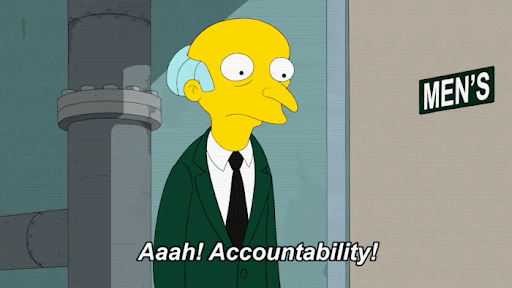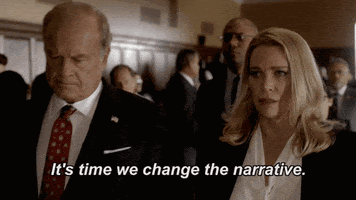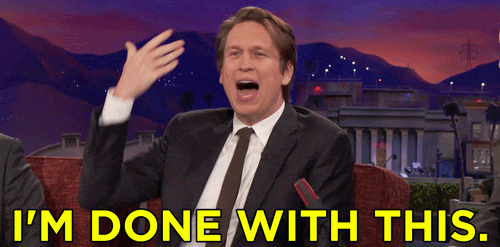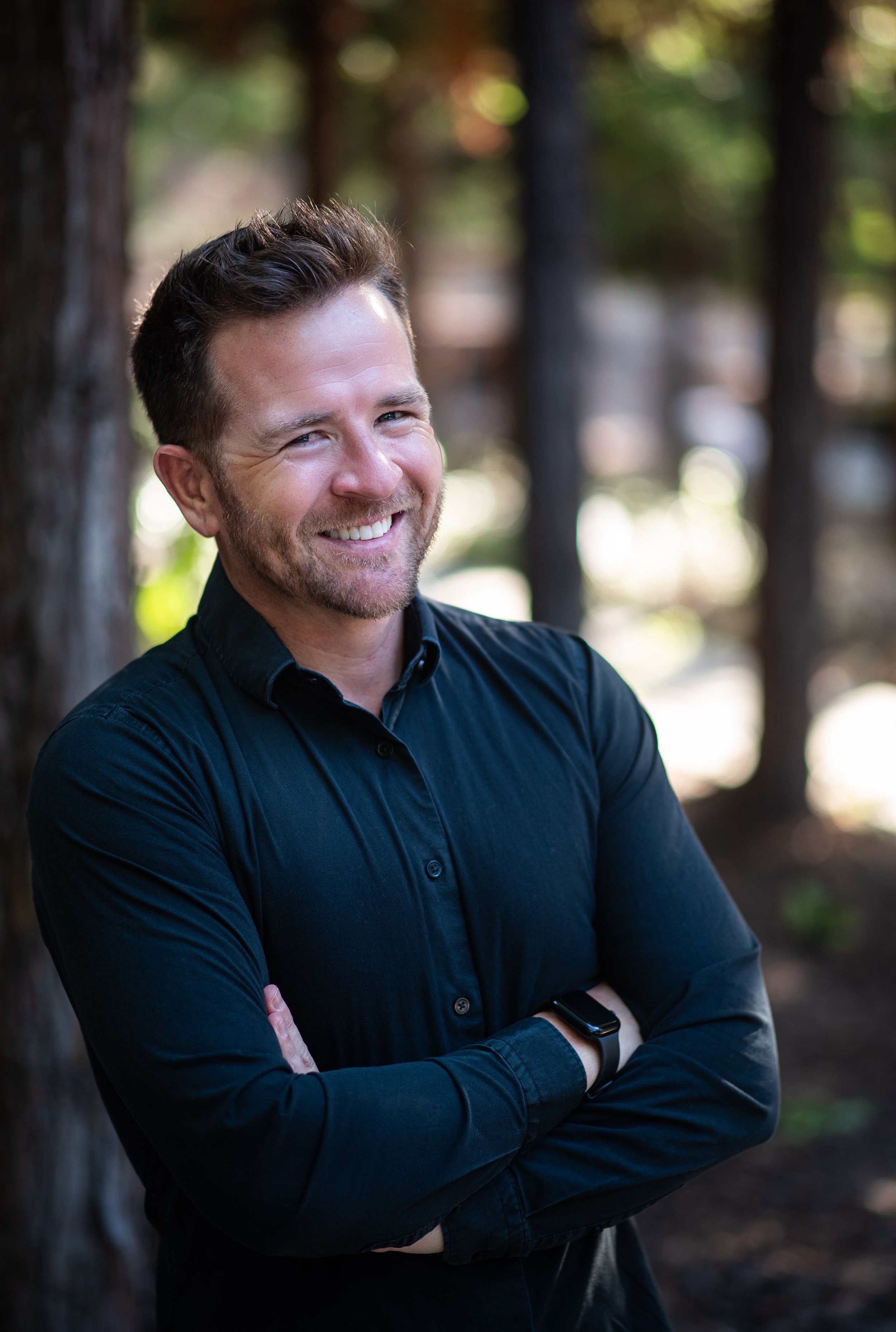Crossing the Great Divide: How to Get to the Heart of Accountability
Get stories like these delivered straight to your inbox
Sign up for the CultureStoke Newsletter here >>>
It is one of the worst-kept secrets in the world that few people in positions of authority are, in the purest sense of the word, leaders.
One might be in a position of authority, with a team or an organization that reports to them. That does not make them a leader.
A leader is someone who guides, inspires, and influences others. Not simply someone in charge.
Here's the catch: people have to allow you to guide, inspire, and influence them. They have to choose to follow you. Just because people do what you ask them to do when you ask them to do something does not mean you are leading them.
A fundamental reminder about leadership is that it is not about you. It's about them.
A leader without people willing to follow is just a crossing guard directing traffic. Sure, people will do what you ask, but they aren’t looking to you for anything more. Probably not.
So, what does it take to be a truly effective leader?
A lot. It takes a lot.
However, I want to focus on one of the more slept-on characteristics of leadership. The one that can make you the leader that people talk about when they are asked, “Who was your best boss?”
I want to talk about accountability.
Accountability.
The big, scary, challenging, but vital ingredient to effective leadership that few are genuinely and intentionally practicing. Holding people accountable is arguably the most crucial role in a leader's purview. So in this article, we are going to discuss: what accountability is, why it is so hard, and end with some practical tips to make it less daunting.
Accountability, what’s that?
Accountability is “an obligation or willingness to accept responsibility or to account for one’s actions.” For leaders, this becomes more complex. Not only do you have to have the willingness to account for your actions, but you also have to account for the actions of those you lead.
Self-accountability is hard for anyone, let alone leaders. It is easy to excuse our actions (behavior) based on circumstance or what others have done that “made us” behave that way. The temptation is strong because it releases us from accountability. Still, it also diminishes our power or control because it ignores one inescapable truth: the only thing we have 100% control over is our behavior.
A friend of mine will often refer to one of his personal values, “there’s no excuse for being an asshole.” It’s ok to be one, just don’t excuse the behavior. There is a lot of responsibility in holding that belief, but therein lies the power. Every time we give up our ownership of self, we relinquish control of the one thing we can (and should) always hold dear: ourselves. Consequently, when we abdicate our responsibility for self-accountability, we also diminish our ability to hold others accountable.
Holding others accountable means taking responsibility for your own actions and the actions of those who are in your charge. It’s what sets leaders apart from bosses. Holding people accountable is easy to say, hard to do. But why? There are myriad reasons we can point to, but three stand out to me as most pervasive:
Too Busy
Avoiding the Hard Things
I Didn’t Sign-up for This
Let’s dive into these and some practices on how to swap the plot.
Too busy
“I would love to hold people accountable, but I just don’t have time.” I have heard this over and over again, and it’s understandable.
One study reported that only 30% of managers believe they have enough time to do all their work. And, the next leader I talk to who tells me they aren’t overburdened will be the first.
Before I address this issue, I want to acknowledge that we have a system that is designed to ask more of people than we should constantly. There is social, vocational, and personal capital built in the real and perceived merits of overload. Put another way, we incentivize people to look and act busy. By no means do I want to minimize this very real and systemic problem, but it is in that reality that our equally real accountability problem has been exacerbated.
So, what can we do about this?
There is no easy “fix” to being “too busy,” but a way to minimize its impact is actually a combination of two factors. The first is one we have already talked about. Taking back ownership of your own actions. That’s right! Personal accountability is the pathway to holding others accountable. If you are not willing to take responsibility for your own actions, how can you possibly hope to do so for others? Worse still is if you try to hold others accountable but neglect your own; you run the risk of becoming hypocritical (rules for thee, not for me) and breaking trust. I am reminded of the old expression “don’t ask other people to do something you aren’t willing to do yourself.” Leaders need to hold themselves to a higher standard of accountability, not a lesser one.
The yin to the yang of personal accountability is a redefining (or more appropriately, a reminding) of what your role is. At some point, we have forgotten that leaders lead people who drive results, and leaders have become managers who get results by driving their people. It seems like a minor distinction, but I promise you the chasm between the two cannot be understated. If you (and your organization) define your role simply as a driver of results, people become expendable parts that can be interchanged if they don’t perform. This line of thinking renders accountability moot. Why go through the bother of trying to improve performance when I can just replace them? However, if you define your success in the growth of your people, accountability becomes paramount. Combining taking ownership of your own actions and making it your primary role to help others places accountability at the top of your priority list, not the bottom.
Avoiding the hard things.
Look, no one likes to have hard conversations. That's why they are called hard conversations.
Hard conversations come with the mantle of leadership. With the privilege of a higher paycheck and prestige comes the responsibility to be the leader people want to follow. People who shy away from holding others accountable quickly show themselves to be ineffective at literally the main reason you exist in your organization.
Being a leader takes courage; if you don’t want to do that, don’t be in charge.
There is a reason why they are called hard conversations, and holding people accountable is at the top of the hard conversations list. By nature, there is no way to make those “easy,” but there are things you can do to make them matter. A leader who exercises three critical forms of care will find that those conversations become impactful for them and their people.
The first thing is you have to care about the person. We have discussed this topic of care in previous articles, but it warrants some reminding. Caring for someone is not the same as liking someone. You can care about people you don’t like. A dear friend of mine, Harry, once said, “If you don’t care for the person, you do not have the right to manage them.” Caring for the person means you want good things for them, you want them to be successful, and you want them to reach their full potential. To do so means they need to be aware of their blind spots, and the only way to learn about blind spots is through feedback. The model below is a great place to understand the importance of feedback.
You can learn more about the Johari Window (seen above) and how to use it here.
The second thing is that you need to care about the rest of the team. It is a well-known fact that attitudes are contagious and behaviors are learned. When “bad” behaviors are allowed to persist because the leader is either too scared or can’t be bothered to address them, the ripple effects of that neglect are far-reaching. Leaders are leaders of people: plural. That means you have to manage them as individuals, but also understand the impacts (good, bad, ugly) those people are having on one another. This is especially challenging when the team member in question is a high performer. The temptation to excuse treating people poorly, or not aligning with the culture, because they are productive, is seductive to say the least. But effective leaders understand that what does not get addressed is tacit acceptance of the behavior, and what the team learns is “its ok to be an asshole if you are good at your job.” Holding a person accountable is hard. Next time the temptation is there to ignore poor behavior, I want you to ask yourself, “What am I teaching my whole team by allowing this to persist?” Because they are watching and learning at all times. The next level of care is one I don’t think gets as much attention as it should.
The third level of care is that you have to care about what you are holding people accountable for. The rules have to mean something to you. Far too often, we create rules because they sound like a good idea. Here is the problem with that: accountability is not an intellectual exercise. Having a no-cell phone policy on the sales floor sounds like a good idea. Heck, most companies have that policy! And yet, walk into most stores and you will find not only the associates checking their phones, but probably the manager’s too. This is not “an old man yelling at clouds” moment either; I am not advocating for that policy to be enforced. What I am advocating for is that you only have rules and policies that you (and your entire team) are willing to follow and hold others accountable to follow as well. To achieve this, you must understand why something is important, and it needs to matter to you personally beyond just intellectual understanding. Accountability comes from care, care comes from the heart, not the head.
I Didn’t Sign-up for This.
Everyone can be a leader, but not everyone should. For lots of reasons I won’t get into in this article, we have created a system that drives people into leadership positions. There are many who, if you were to ask them, in their heart of hearts, would admit they don’t like being a leader. It is a hard job! We have created this notion that to “be successful,” you have to be a boss, climb the ladder, and sit atop the org chart. That is nonsense, and thankfully, I think we are turning that notion around. A recent study found that over 40% of employees are turning down promotions due to the impact it would have on their personal lives. This is a relatively new phenomenon, which means we still have a plethora of people who are in positions of authority who probably don’t actually want to do that. If this is you, there is only one fix. Stop being in leadership. It's ok. It is not a character flaw; it is not a sign of weakness. On the contrary, it is an ultimate sign of ownership and intentionality to be able to look yourself in the mirror and say, “I don’t want this.” People get into leadership positions for a lot of reasons, but if “I want to help people grow, live amazing and fulfilling lives” is not somewhere near the top of your list, it might be a good time to ask yourself if this is the right spot for you. Because accountability is a tenet of effective leadership, it should be a top priority and comes with the job; it adds a layer of responsibility that is not for everyone. And, that's ok!
Accountability is not easy, but it is simple. I hope this article serves as a reminder that being a leader is a privilege. You have more influence on your people than you probably realize. They will tell their friends and family about you. They will etch your name in the book of their life. It is an honor and one that comes with the responsibility to live up to that honor. There are many facets of leadership, and accountability should be front and center in your mind. Accountability of self (managing my own actions and behaviors), accountability of my people (being the sounding board for and the reflection of blind spots to help your people grow, and accountability of the team (ensuring the collective adherence to acceptable and unacceptable behaviors for all).
If it were easy, everyone would do it. But it’s not easy, and that’s why we need you.
Wes Love
Founding Partner








